Key Takeaways
- Because of the advantages of personalized learning content, Colorado Technical University began piloting courses with adaptive learning in the beginning of 2012, launching the adaptive learning platform intellipath.
- University-wide training of students, staff, and faculty has resulted in 800 faculty members — about 82 percent — trained on intellipath, with most of those training sessions in years two and three of the rollout.
- In addition to improved student success markers such as grades, engagement, and retention, CTU has won several awards for its adaptive learning platform.
When leadership at Colorado Technical University made the commitment to develop an adaptive teaching and learning strategy as a part of CTU's long-range academic programming plan, the following scenario was still a typical experience for many students attending U.S. colleges and universities:
It's the first day of the term. Martin rushes to his first class, College Algebra, while Anna sits down at her computer at home and logs on to her first class, too — College Algebra online. Math isn't Martin's strongest skill, but he's optimistic and willing to learn. Previously, Anna earned an associate's degree, so she has had some college-level algebra, but not enough to satisfy the requirements of her bachelor's degree program. She wants to get this course out of the way quickly. When the professors greet their respective classes, in person and online, both Martin and Anna have a sinking feeling that the professor may never know his or her name and wonder how they will manage in a class with so many people. Additionally, Anna is dismayed to find that there is no way to quickly cover the material that she already knows — she will have to work through each lesson sequentially and try not to get discouraged or frustrated. Or bored.
Of course, many postsecondary institutions were (and still are) working to move beyond this typical scenario and exploring how to address the unique knowledge and learning styles of students, enhance traditional brick-and-mortar and online class experiences, and also develop innovative online environments to personalize the learning experience for both campus-based and online students.
In 2012, online enrollments continued to increase, as they had the previous nine years, at rates far in excess of those of traditional colleges and universities overall, and more than 6.7 million students enrolled in online education at degree granting universities.1 As these numbers increase, leaders at postsecondary institutions focus even more on how to use technology and innovations from outside of the education sector to meet the educational, social, and economic demands of their shifting enrollment populations. In fact, Gartner, a leading information technology research and advisory company, projected that worldwide technology spending in the education sector (including higher education as well as primary and secondary) would grow 2.3 percent to reach $67.8 billion in 2015, forecasting that most of this spending would be in adaptive learning, e-textbooks, CRM, mobile, and other technology solutions.2 The resulting influx of technology-enabled education solutions and models from software companies and institution-led initiatives means students like Martin and Anna are receiving some personalized, technology-enhanced education; however, ineffective development, implementation, and adoption practices of such learning technologies negatively affect student competency outcomes or evidence of learning, engagement, and degree progress while proving costly to postsecondary institutions.
A number of U.S. colleges and universities recognize that a one-size-fits-all learning approach is not working in many instances, and adaptive learning technology solutions show positive results in a number of large pilots. In fall 2015, bolstered by a $4.6 million dollar grant from the Bill & Melinda Gates Foundation, the Association of Public and Land-grant Universities (APLU) offered a competitive grant opportunity for its 237 member universities that want to advance personalized learning, use technology for proactive advising, and accelerate degree completion rates.3 In my tenure at CTU, I have observed students increasingly seeking out more integrated and dynamic learning environments that depart from traditional models of academic instruction and learning assessment — environments that align more with their daily interactions with technology and how they access and process information. These interactions are becoming progressively more personalized and mobile, and I believe colleges and universities that offer effective adaptive learning experiences may have a competitive advantage.
So what benefits do effective adaptive learning–enhanced courses offer students? Here are a few given my experiences and student feedback at CTU:
- Increased control: In course-end evaluations, students report that they can move quickly through what they know and focus on what they do not, so they are not left behind or repeating work.
- More engagement: Our students report that adaptive learning makes classes "more fun," and that fun usually translates into greater interest in topics and increased enjoyment when completing course tasks.
- Long-term learning: As evidenced by student engagement data and assessment performance in CTU's adaptive learning platform, adaptive learning offers students more than rote memorization of facts; students learn new information, retain that information, and then can readily apply it both in and out of the classroom.
- Higher confidence: Our students report in course-end evaluations that they feel good when they master subject areas that they have struggled with in the past, and that adaptive learning helps them gain confidence in showing what they know and proactively addressing what they do not.
- Improved results: All students get extra support in areas they might be struggling with, which can help improve performance and degree completion rates.
- More credit: Adult learners can receive credit for workforce, training, community, and prior education experiences, enabling them to move more quickly to new learning areas.
Because of the advantages of personalized learning content, we began piloting courses with adaptive learning at CTU in the beginning of 2012. We launched our adaptive learning platform, intellipath, with pilots in math and English courses, offering three courses to approximately 100 students. This is what Martin's math course experience would look like if his instructor used adaptive learning technology:
In his College Algebra course, Martin initially demonstrates strong core knowledge in fractions, but he struggles with solving linear equations that involve fractions. The adaptive learning technology assesses his strengths and changes how the course material is delivered, so he spends less time reviewing what he already knows and more time in the areas where he needs more support — like linear fractions.
We intended to begin small and held ourselves accountable to that objective. To help ensure that the adaptive learning solution delivered timely, engaging, and effective content to the students and met faculty needs as well, we developed a rollout model that CTU adheres to today (figure 1).
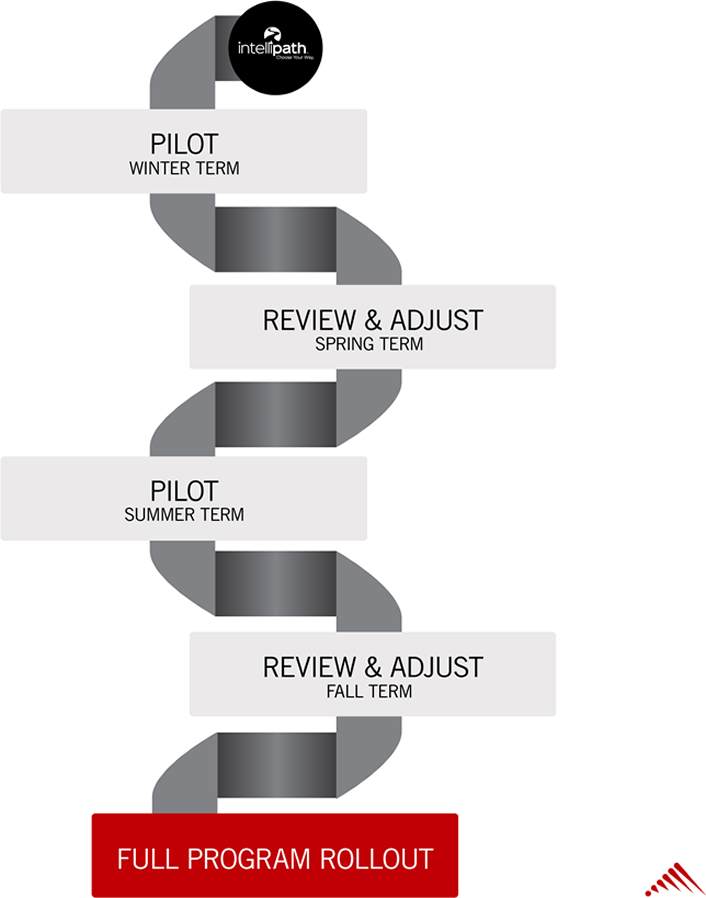
Figure 1. Colorado Technical University's adaptive learning rollout model
This model is one of the keys to an effective rollout, as it allows the university to implement the platform in stages in a highly controlled and responsive way. By analyzing the platform at targeted intervals throughout its development and initial rollout, we were able to make critical adjustments before extending the platform to larger audiences. After focusing on general education courses in science and math, we expanded the platform's offerings to include business courses, adding accounting and statistics courses after the first year.
Adopting a Training Model and Culture for Adaptive Learning
"At first I was skeptical on using intellipath because it was my first experience using this learning component. Eventually I got the hang of it and learned so many things from intellipath."
—Student comment, course-end survey, Academic and Career Success course
Student success and institutional success are contingent on adopting and following through with an integrated and ongoing training program. Our adaptive learning technology training program encompasses all university populations — our students are at its core (figure 2).
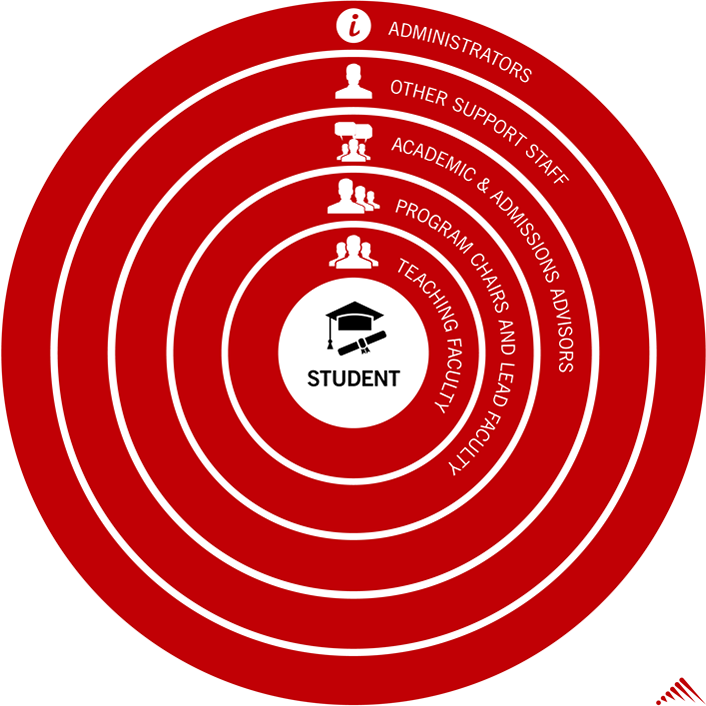
Figure 2. Colorado Technical University's model for adaptive learning training
Currently, we have trained over 800 faculty members — about 82 percent — on our adaptive learning platform. Most of those training sessions occurred in years two and three of our rollout.
- For students: Once enrolled at CTU, students have access to the Student Success Center and are directed to the Getting Started with CTU web page within the center, which includes intellipath tutorials. Admissions advisors have resources such as handouts, online tutorials, and FAQs to send to students, and the two-week CTU orientation program contains an overview video of the adaptive learning platform. Additionally, a majority of the CTU orientation curriculum is delivered in intellipath to give students hands-on practice with the technology (figures 3–6). Students completing the online orientation spend an average of 1 hour and 13 minutes in the system. If a student is enrolled in any class that uses the adaptive learning platform, the instructor will review it in the first class session and direct students to online information and training resources.
- For teaching faculty: We train faculty specifically for the technology in a one-week, self-paced training program that occurs right before they begin teaching. Then, we follow up with faculty once they are actively in the course and teaching students. This follow-up is a critical check-in point because positive faculty engagement with the technology is integral to student success with the technology.
- For program chairs and lead faculty: To offer support to faculty, program chairs and other lead faculty go through the same training. By adding this population to our training program, we include a larger group of the academic team and increase support for and understanding of the technology and its use at our university.
- For academic and admissions advisors: Student academic and admissions advisors are trained on various adaptive learning tools as well. This enables them to understand the capabilities of the technology and become familiar with the student experience, which aids advisory staff in managing student expectations and understanding how the technology integrates with our academic programming.
- For other support staff and administrators: We train these university populations to further ensure that individuals at all levels and positions understand the capabilities of the technology and are familiar with the student experience. This communication has facilitated a culture that embraces adaptive technology at all levels of the university.
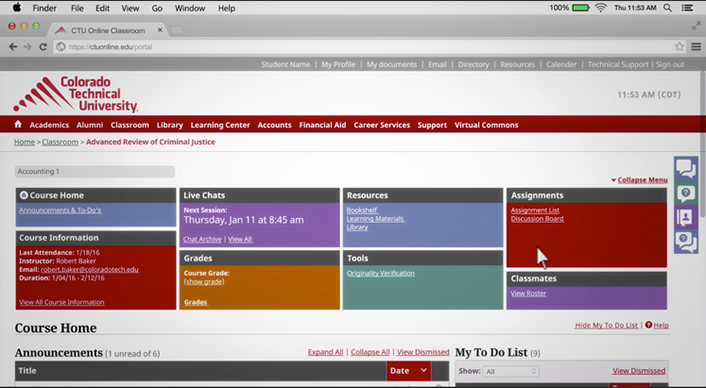
Figure 3. intellipath student dashboard
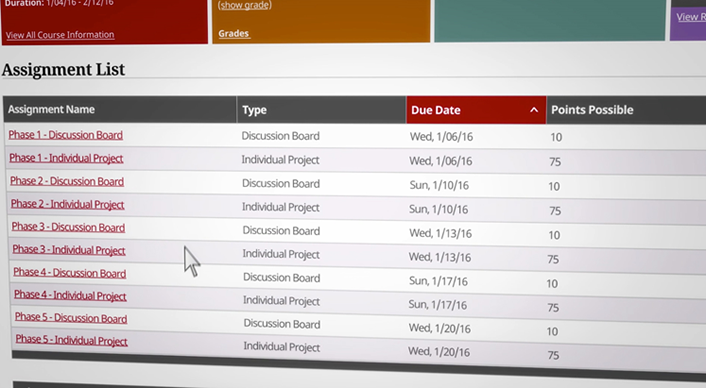
Figure 4. intellipath student assignment list
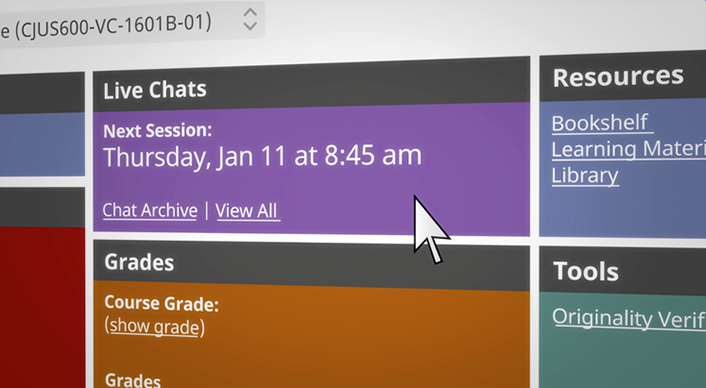
Figure 5. intellipath course live chat sessions
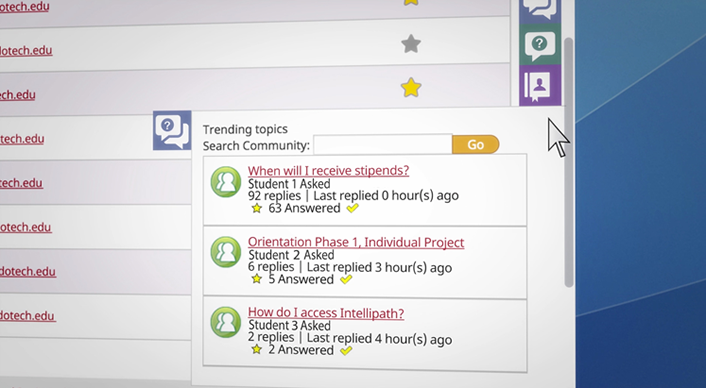
Figure 6. intellipath student community forum
This university-wide training model cocoons students like Martin and Anna in a multi-tiered support community; it does not matter if they are enrolled on campus or online.
Implementing our adaptive learning rollout model and training program took time — about four years to reach 15 percent of our total course offerings (figure 7). Each year we were able to significantly increase the number of courses offered. In 2015, we launched 63 courses, offered a total of 107 courses, and had just over 32,000 users.
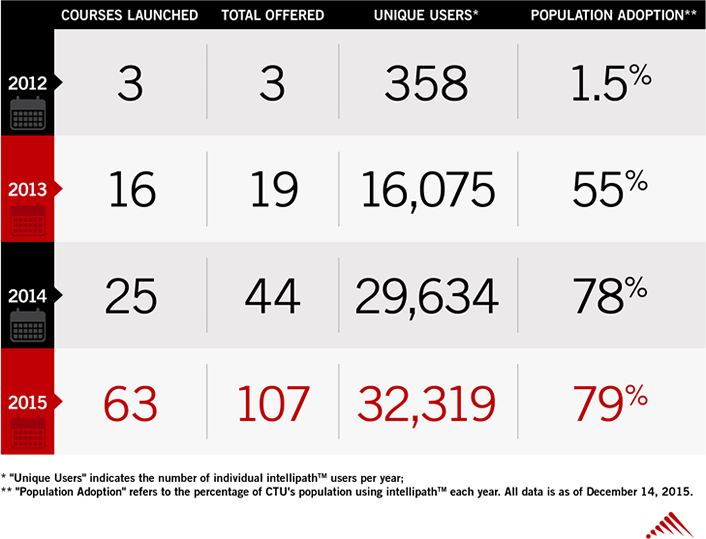
Figure 7. Colorado Technical University's intellipath rollout timeline
We were cautious not to launch too fast, or too big, or drive precious resources into a technology solution that would fail due to poor design, implementation, stakeholder buy-in, or lack of scalability.
In a recent review of pass rate, final grade, and retention data, we identified Accounting I as the course with the highest pass rate increase since its launch on intellipath in October 2013. We compared pre-intellipath data from October 2012 through September 2013 to post-intellipath launch data from October 2013 through December 2015. The pass rate went up to an 81 percent average — a 27 percent increase. The course retention rate rose about 9 percent to 95 percent, while the final grade average increased by 10 percent, to 79 percent. CTU's Accounting II and III courses also experienced higher pass and retention rates: between 5 and 7 percent for pass rates and an average of 2.5 percent for retention rates.
One of the first courses to launch on the platform was Introduction to College Math. From April 2013 through December 2015, this course had an average pass rate of 84 percent, which is a 10 percent increase from its pre-intellipath rate. Also, when compared to the pre-intellipath data, the course's final grade averages rose about 2 percent to 82 percent, while its retention rate increased 3 percent to 92 percent. The results for Algebra for Business show similar gains, while the retention rate for Data Driven Statistics is higher, increasing from a pre-intellipath rate of 90 percent to a post-launch (October 2013 to December 2015) rate of 96 percent. As each term comes to a close, we are closely monitoring the results from new courses launched, which include courses in economics and science, to make adjustments that better aid our faculty and students using the adaptive learning technology.
"I really enjoyed the way this online class was designed. It was my first, and it was great!"
—Student comment, course-end survey, Algebra for Business
Both CTU's students and faculty continue to benefit from this careful, university-wide approach. CTU received the 2014 Outstanding Work (WOW) award for how we are using intellipath in our MBA program from the WICHE Cooperative for Educational Technologies (WCET). And in fall 2015, CTU received the 2015 Effective Practice Award from the Online Learning Consortium (OLC). This award recognized CTU's work "Improving Performance in College Algebra Using Technology": using adaptive learning and technology to develop effective educational practices in the delivery of algebra. "It's an honor to be recognized by these organizations dedicated to the advancement of technology and learning in higher education," said CTU President Andrew H. Hurst. "We are proud of CTU's intellipath and the impact it has made for our students and faculty."
Discovering an Unlimited Adaptive Learning Horizon
The expansion of CTU's adaptive learning platform has been organic, chiefly originating from the needs of our academic programs, feedback of our faculty, and students — both based online and at our campuses in Colorado. Since adaptive learning is integrated into the university's culture, we continue to explore new ways to use the technology to make experiences better for all stakeholders in our community — students, faculty, support staff, and administrators. Following are a few ways we use adaptive learning technology outside of course instruction:
- As prerequisites for MBA students, who enroll in the program without prior business courses in their academic history
- Using adaptive learning maps, creating challenge exams that we call CTU's Fast Track, which allow students to demonstrate competencies in academic areas and earn college credit for what they already know, through work, training, or other experience, enabling them to earn their degree faster
- As a vehicle to increase student engagement, especially for our online students, and mastery of academic content
"I truly enjoy intellipath and how it has helped me remember the info. I've learned through the revision process. At my age and learning abilities, it has been most helpful."
—Student comment, Science and Technology Laboratory
"Whenever I had difficulty understanding a part of the course material, I knew I could use the intellipath lesson to add to the live chat session to get a better understanding of project requirements and material."
—Student comment, Principles of Macroeconomics
We are exploring our future plan for intellipath and ways to integrate the adaptive technology further. Nursing education seems like a perfect place to explore with intellipath, since nursing education is very much about mastering specific skills and competency areas. We continue to be energized by the possibilities of adaptive learning and fueled by the experiences of our faculty and our students.
Notes
- I. Elaine Allen and Jeff Seaman "2012: Changing Course: Ten Years of Tracking Online Education in the United States," Online Learning Consortium, December 8, 2015, 4.
- "Gartner Highlights the Top 10 Strategic Technologies Impacting Education in 2015," Gartner, February 27, 2015.
- "APLU Awarded $4.6 Million to Advance Personalized Learning and Proactive Advising at Public Universities," APLU, November 16, 2015.
Connie Johnson ([email protected]; Twitter: @DrConnieJohnson), EdD, is Colorado Technical University's chief academic officer and provost, working with both online and ground degree programs. She oversees academic affairs, including faculty, curriculum, classroom experience, and accreditation. While at CTU, Johnson has initiated adaptive learning technology, effective leadership of academics, women's leadership, leading academics through change, and effective technology implementation in the online classroom. A trained peer evaluator for the Higher Learning Commission, has completed and served as a facilitator in the ACE Chief Academic Officer Institute, and is on the CTU Board of Trustees. She has a doctorate of Education, organizational leadership emphasis, and a master's of Business Administration in management from Nova Southeastern University; and a bachelor's of Science with honors in criminal justice from Florida State University.
© 2016 Connie Johnson. This EDUCAUSE Review article is licensed under Creative Commons BY-NC-ND 4.0 International.
